This June marks the 10th anniversary of Obergefell v. Hodges, the landmark Supreme Court decision that legalized same-sex marriage nationwide. In terms of cultural significance, it is difficult to imagine a more consequential moment for LGBTQ Americans. The ruling didn’t just change the law—it brought us all closer together. Indeed, as a veteran pollster, I have never witnessed a more rapid or dramatic transformation in public opinion than the shift we witnessed on same-sex marriage over the past 25 years. I felt that shift not just as a pollster, but as someone whose own marriage became possible because of it. I married a man who would later become a priest in the Episcopal Church, surrounded by friends, clergy, and the symbols of an institution that had once excluded us. Ten years ago, the lives of millions of other gay and lesbian couples were given newfound dignity through recognition of our relationships.
And yet, at WorldPride DC—now underway in our nation’s capital and billed as one of the largest LGBTQ events in the world—this milestone is nowhere to be found.
A sprawling, month-long celebration, WorldPride DC includes dozens of panels, performances, art installations, and community events representing nearly every imaginable identity and intersection. There are events focused on queer economic justice, trans housing policy, polyamory, climate change, inclusive faith traditions, even an Andy Warhol retrospective. But as of this writing, there is no official programming dedicated to marriage equality—not a panel, not a commemoration, not a single conversation about the legal, cultural, or civic legacy of Obergefell. The organizers of WorldPride DC did not respond to an inquiry from The Dispatch about the omission of any marriage equality observation.
Why has the most transformative achievement of the LGBTQ movement—an achievement that redefined both the legal status and the cultural perception of our relationships—been all but erased from the very event that purports to celebrate LGBTQ progress? The absence of marriage from this anniversary moment suggests a deeper discomfort—not just with what we accomplished, but with what we said it meant.
The argument that ultimately persuaded the American public—and Justice Kennedy, who wrote the Obergefell opinion—was not one of radical liberation, but of moral aspiration. It was what came to be known as the “conservative case” for marriage equality, and its power lay in its humility. Advocates like Andrew Sullivan and Jonathan Rauch didn’t ask the country to redefine marriage—they asked to be included in it. They made the case that marriage wasn’t merely a right to be claimed, but a civilizing institution that could channel human longing into responsibility.
“The legal contract was never what mattered most. What mattered was planting cultural guardrails—setting expectations, bestowing dignity, and helping turn longing into love, and love into commitment.”
Sullivan, the earliest and most prominent advocate of that case, has acknowledged that same-sex marriage was a necessary corrective to the sexually permissive culture that had taken root in parts of the gay community. He has stated plainly that we would not have same-sex marriage today were it not for the devastation of AIDS. The conservative case emphasized the traditional values inherent in marriage: monogamy, permanence, and duty. Those of us who argued for our inclusion in marriage did so—or at least should have done so—because we believed those ideals were good, not because we believed they were optional.
It wasn’t a fight for equality, or the rights-based argument advanced by major LGBTQ organizations like the Human Rights Campaign, that changed hearts and minds. That framing—rooted in the language of civil rights—resonated within the progressive base but failed to persuade a broader public. The attempt to dust off the American civil rights playbook and apply it to same-sex marriage was not only ineffective—it misunderstood what we were fighting for. LGBTQ Americans have faced horrific discrimination, but exclusion from marriage was not Jim Crow. Throughout the 2000s, dozens of defeats at the ballot box and in state legislatures proved the limits of that approach.
Only when the progressive argument began to mirror the conservative case—framing marriage not simply as a legal entitlement, but as a social good that benefits both individuals and society—did public opinion begin to shift. The conservative case, which emphasized the moral seriousness of lifelong, monogamous commitment, succeeded precisely because it wasn’t about autonomy. It was about the longing to participate in something larger than oneself, and to be shaped by it.
Yet even before Obergefell, it was an open secret that many gay male relationships operated under different norms—norms that placed far less emphasis on sexual exclusivity and far more on personal autonomy. Among the couples I know, “open relationships” are not the exception; they are more often the expectation. Monogamy is treated with suspicion—either as a relic of heterosexual repression or an unrealistic constraint on adult desire.
A 2023 Pew Research Center survey asked Americans whether “open marriage” was an acceptable arrangement for married couples. Twenty-nine percent of straight Americans said yes—compared to 75 percent of lesbian, gay, or bisexual Americans. One could interpret this as a reflection of the LGBTQ community’s hard-won tolerance and rejection of sexual judgment. Even Andrew Sullivan would later question the expectation of monogamy in same-sex marriage, suggesting that by exploring new forms of commitment, gay couples might actually help “resuscitate” the institution for the 21st century. Even before Obergefell, many were abandoning the pretense that same-sex couples sought to enter the institution as it was, rather than to remake it.
Since Obergefell, interest in alternatives to monogamy has only grown within LGBTQ circles, including polyamory and “ethical non-monogamy” (ENM). Proponents argue that monogamy sets up couples for failure—and that not repressing one’s desires can actually strengthen relationships. If true, one might expect that lifting that burdensome cultural expectation would spark a boom in same-sex marriages. But that hasn’t happened. The marriage rate among LGBTQ Americans has barely budged since Obergefell. Only 10 percent of LGBTQ Americans are married today—the same rate as in 2016, and just a fraction of the 50 percent marriage rate among straight Americans.
The silence on marriage at WorldPride DC is not an oversight. And yet, it has gone unnoticed—no protests by LGBTQ Americans to celebrate or defend this civil rights milestone, no commemorative liturgy by the Episcopal Church at the National Cathedral, no media inquiry into its conspicuous absence. Perhaps it is so unremarkable precisely because it is now obvious to many: Marriage is no longer relevant to the ever-expanding acronym that makes up the LGBTQIA+ coalition.
But it wasn’t simply overlooked by WorldPride DC. It was erased.
The organizers of this event are nominally the Capital Pride Alliance and the Human Rights Campaign (HRC)—the powerful lobby for the erstwhile “gay rights movement” and now representing an incoherent collection of issues and interests across the broader LGBTQ community. Their agenda is deeply shaped by intersectional activism, with a focus on racial justice, trans liberation, economic inequality, and resistance to the current administration. Marriage, with its bourgeois focus on domesticity and social conformity, doesn’t fit easily into their vision or ideology. It never really did.
The irony of the marriage equality battle is that the fiercest opposition to same-sex marriage did not come from the religious right, but from the “queer” left. For decades the radical activists within the LGBTQ movement argued that marriage was not a right, but an existential threat—a set of chains wrapped around a community seeking to escape all “heteronormative” restraints, especially restraints on sexual behavior. These voices, long dominant in the academy and influential within advocacy circles, have now prevailed.
I launched a project called “Marriage After Equality” to make sure the victory would not be erased, but instead understood and honored. That work happens in everyday conversations, and I have found that the people who react most defensively are not other gay men or lesbians, but my progressive straight friends—the very allies who applauded Obergefell the loudest. My gay friends find the conversation dull, as they are not interested in marriage. But my straight friends, not unlike HRC and other LGBTQ institutions, were never fully comfortable with the fact that the conservative case is what delivered the real victory: winning the hearts and minds of millions of Americans. When I raise these questions with gay friends, they nod politely, then begin to stare off into space in boredom—as though I were discussing some arcane ecclesiastical doctrine, something perhaps uncomfortable, but mostly irrelevant.
This gives me a sliver of hope: that gay and lesbian Americans have not rejected marriage so much as ignored it. In this, they are not so different from straight Americans, who are also increasingly opting out of marriage. Despite the complicated relationship many gay men have with monogamy, deep down I believe we still want what every human being wants: to fall in love, raise children, and grow up. But we need help.
Marriage, as an institution, only works when it is supported by the community, through cultural norms and expectations. Having been excluded from it for so long and without the experience or tools, we can’t blame the LGBTQ community for failure in this regard. But where was the church?
In 2003, the Episcopal Church—the nation’s oldest and most established church—elected the first openly gay bishop, Gene Robinson. Since then, this denomination has become one of the most vocal advocates for same-sex marriage, and its destiny has become deeply entwined with the aspirations and moral responsibilities of the LGBTQ community. The Episcopal Church played a leading role in securing marriage equality: It took real risks—blessing same-sex unions long before the law did, and bearing witness in the public square when few others would. But like much of the LGBTQ movement, the church too often framed marriage in the language of rights, inclusion, and symbolic justice—without building the structures that actually sustain the institution.
What was missing then—and is still missing now—is the language of obligation. Of sacrifice. Of rules. The church helped us get to the altar, but it did not teach us how to be married once we got there. And when our marriages (including mine) frayed alongside the ambiguity of expectations, it showed. No one quite knew what to do. The institution that had once fought to include us in marriage had no idea how to support us in it.
The legal contract was never what mattered most. What mattered was planting cultural guardrails—setting expectations, bestowing dignity, and helping turn longing into love, and love into commitment.
Same-sex couples should be among the foremost defenders of marriage—not its postmodern undoing. We persuaded a skeptical nation that we were not asking to change marriage, but to honor it. We claimed its vows, its constraints, its moral expectations. Now, in a moment when marriage is increasingly seen as optional, outdated, or oppressive, we must be the ones to say: This still matters—not just for us, but for our culture, our communities, and our common life. If marriage is to remain a vital institution, it will be because we, who asked for the right to join it, are willing to defend it.
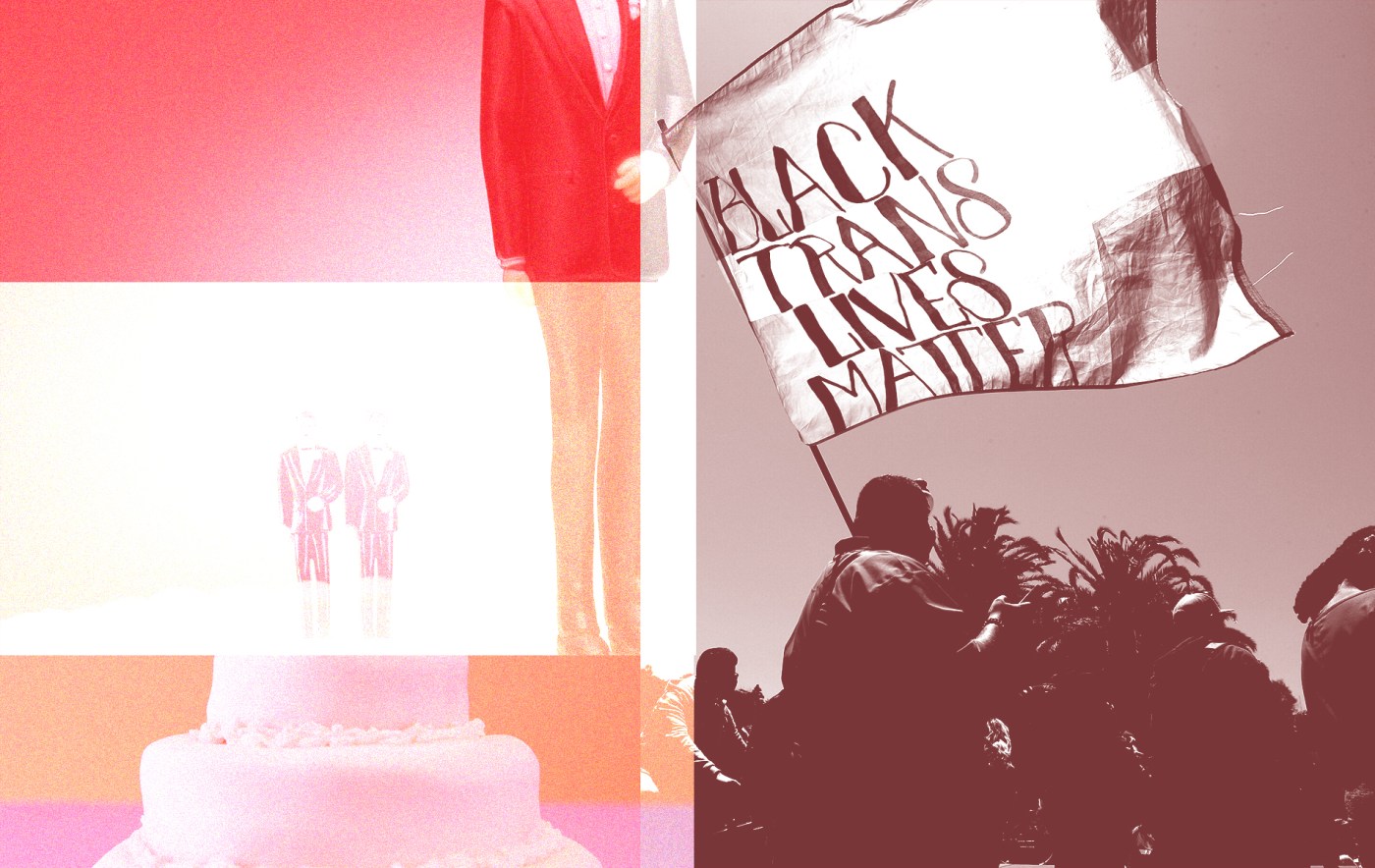
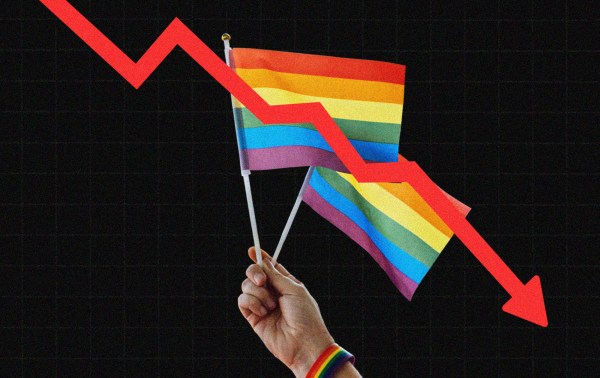
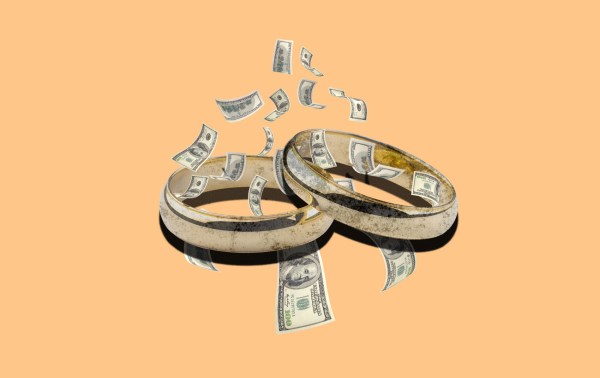
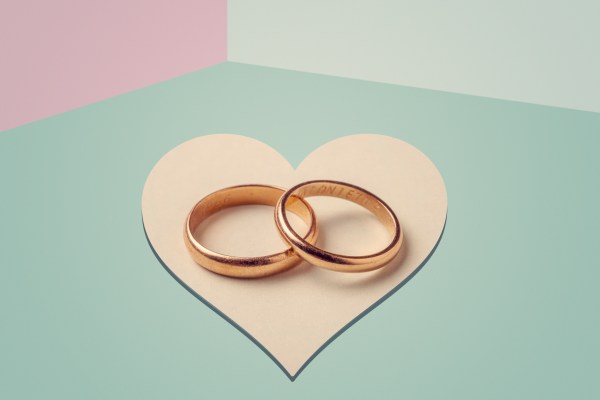

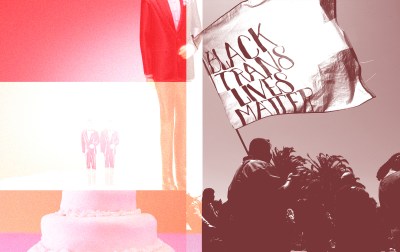
Please note that we at The Dispatch hold ourselves, our work, and our commenters to a higher standard than other places on the internet. We welcome comments that foster genuine debate or discussion—including comments critical of us or our work—but responses that include ad hominem attacks on fellow Dispatch members or are intended to stoke fear and anger may be moderated.
With your membership, you only have the ability to comment on The Morning Dispatch articles. Consider upgrading to join the conversation everywhere.